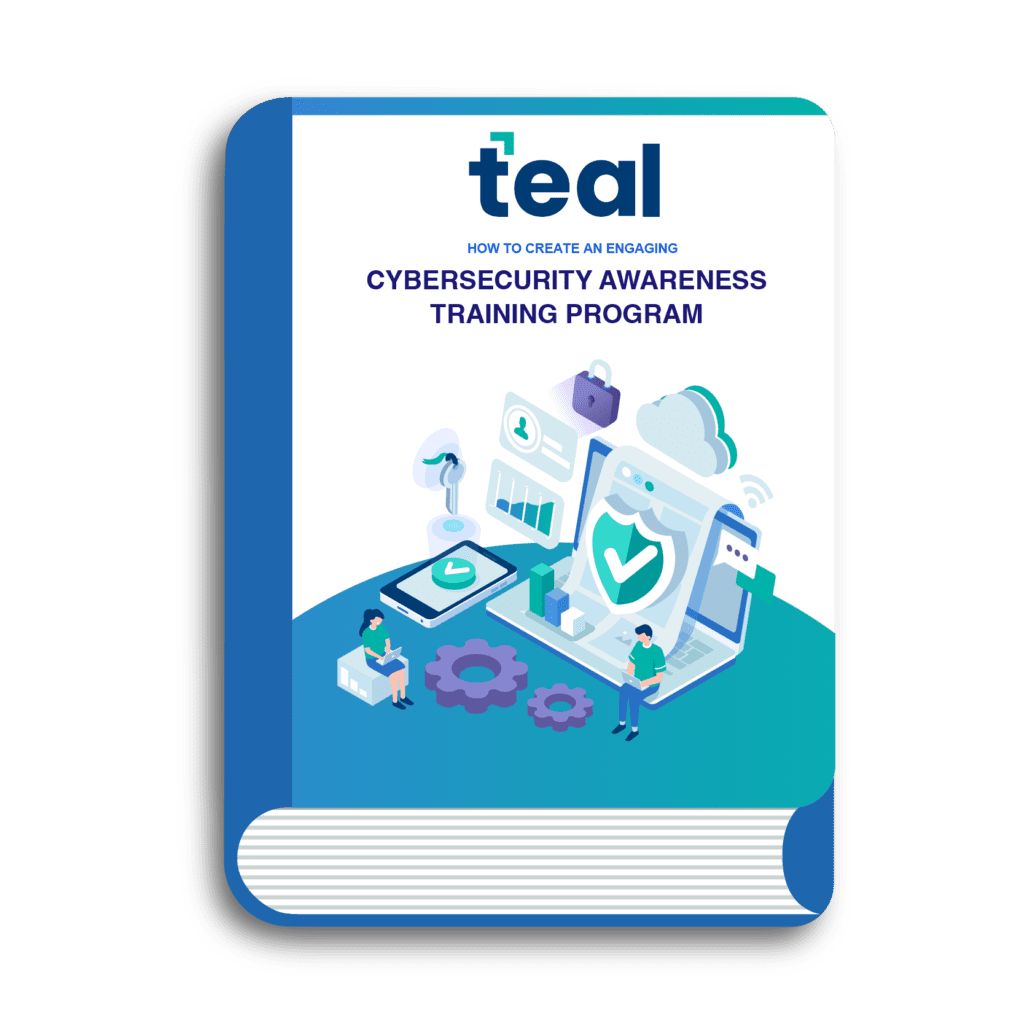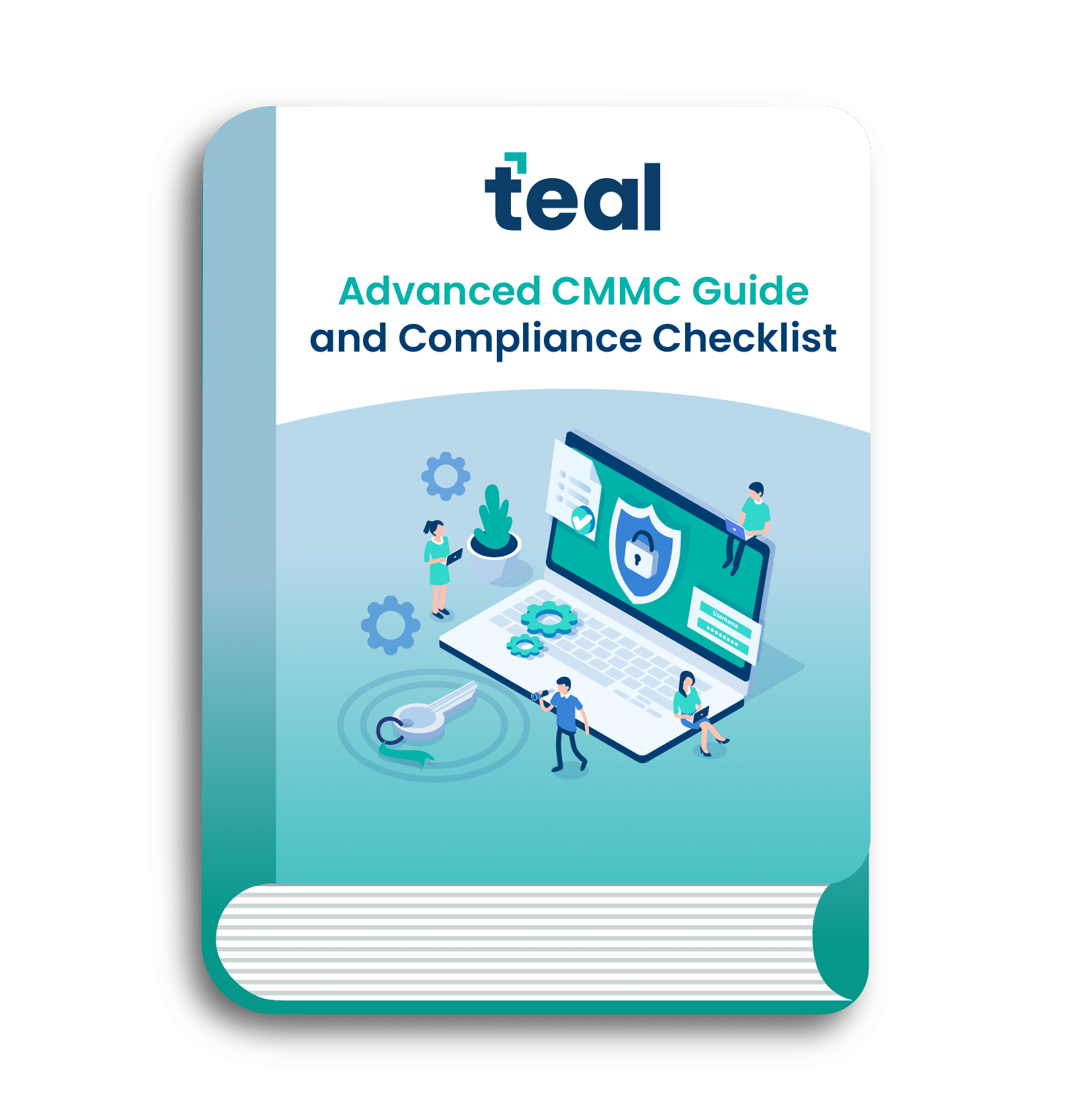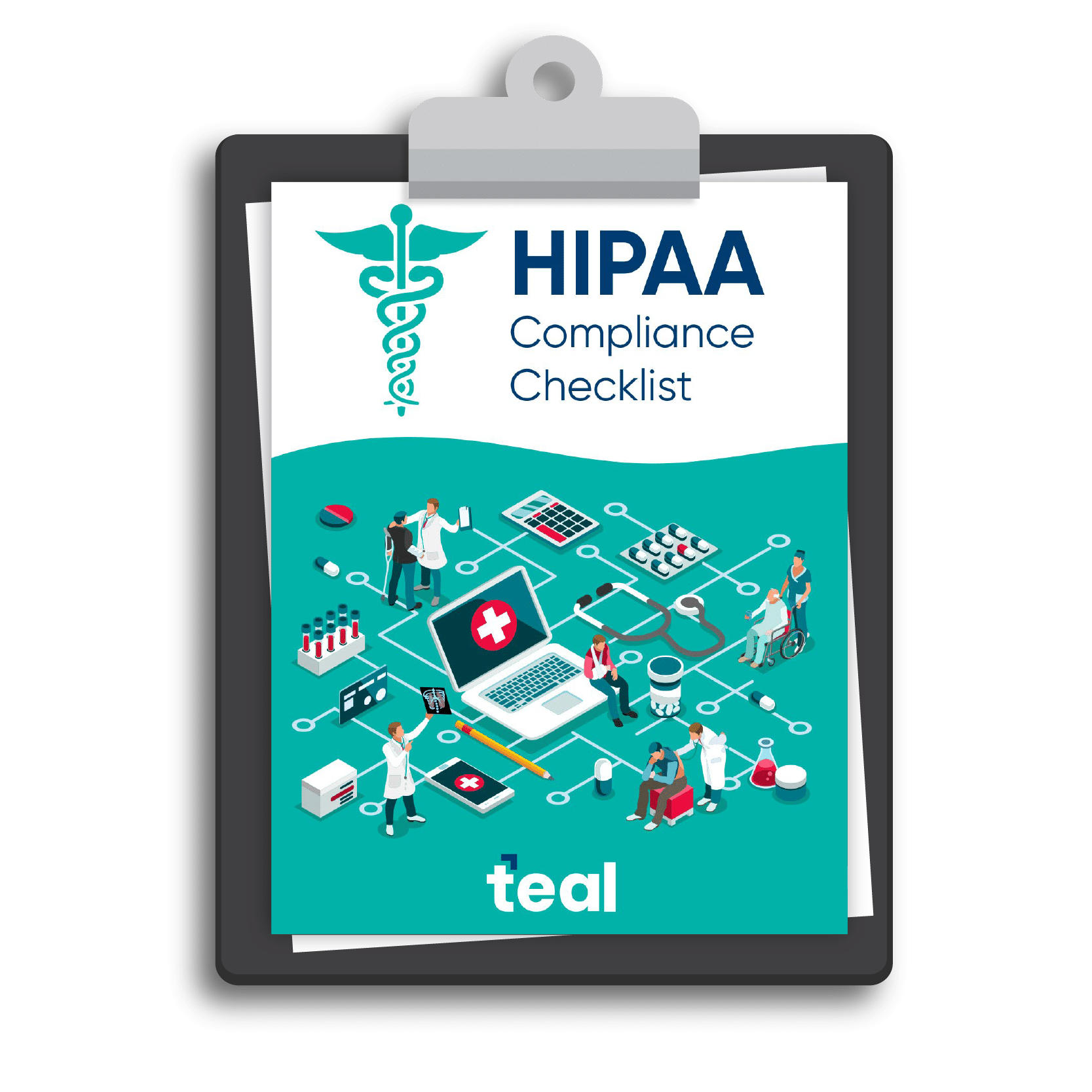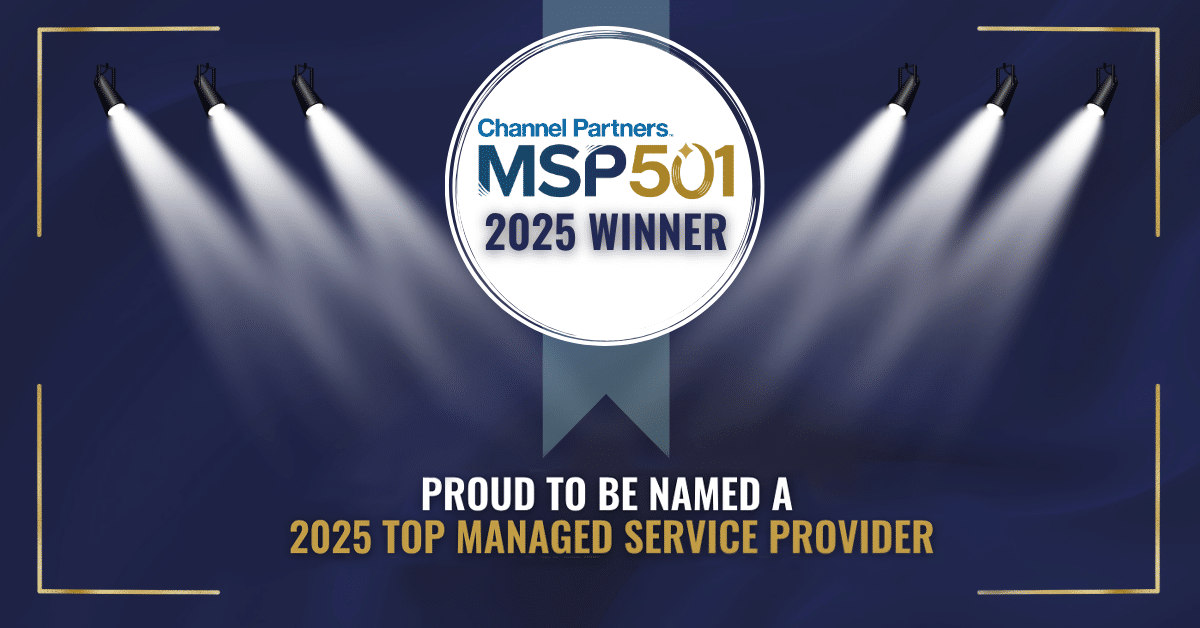Does your managed service provider (MSP) support your cybersecurity profile? The answer to this question is unclear for many business leaders. Understanding your data, your business objectives, and your environment is vital to ensuring that your MSP supports your business’s unique needs and that they possess the level of sophisticated support you need.
Table of Contents

Cybersecurity Needs for Successful MSP Support
Before evaluating your current MSP, you should have a foundational understanding of your cybersecurity profile and business objectives. Let’s dive into how you can identify a need for advanced cybersecurity support.
Digital Trust Obligation to Customers
We manage cybersecurity for many small businesses that see significant returns by investing in their customers. By prioritizing protecting their customers’ data, they enhanced their customer’s trust in their business. They inspired greater brand confidence – which is a massive differentiator in today’s digital landscape.
Customers Demand Security
The study Privacy Front & Center, conducted by Consumer Report’s Digital Lab and Omidyar Network, found that 96% of Americans believe that more should be done to ensure that companies protect the privacy of consumers.
If companies don’t take security seriously, their customers will take matters into their own hands.
If You Won't Provide It, Your Competitor Will...
Cisco’s 2023 Data Privacy Benchmark Study reveals that 94% of organizations said customers would not buy from them if their data was not safeguarded – making it a business imperative. Building trust with customers through data privacy is vital, and your customers expect it from you.
It is worthwhile to note that, to differentiate yourself from your competitors, you should be transparent about how you use data by providing easily accessible information.
In fact, 46% of consumers consider switching brands when a company’s data practices are unclear, and this increases to over 50% amongst Millennial and Gen Z consumers. Consumer data is valuable on the dark web, and customers want to interact with organizations who take their privacy seriously.

Contrary to popular belief, small businesses are often impacted by data breaches – with roughly 46% of organizations with fewer than 1,000 employees becoming targets (Verizon DBIR Report 2021).
Unfortunately, many of them are missing out on a big opportunity to retain, and gain, customers.
Just Starting Your Security Journey? Here's Where To Start
A recent McKinsey survey found that only 41% of organizations are actively working to mitigate cybersecurity risks, and even less (31%) are working to mitigate data privacy risks across most of their organization.
If you’re just starting to boost your cybersecurity posture, there are a few areas you should focus your attention on.
Based on the latest trends, the three key cybersecurity areas that will have the biggest impact for your small businesses in an attack is:
- Security Awareness Training
- Data Recovery
- Access Control Management

Learn how to implement an engaging and successful cybersecurity awareness training program.
This is just the start, though. Ensuring you have all the best practices, threat insight, and technology in place is essential to maintaining a secure environment that customers trust.
There are many other areas you need to consider, including (but not limited to):
- Data encryption
- Regular patch management
- Third-party risk assessments
- Incident response plans
- MFA
Establishing strong digital trust with your customers through robust cybersecurity and data privacy today can truly distinguish your business from your competitors – helping to boost your chances for increased business growth.

Security Built for Government Entities
Many of our clients work directly with government entities or handle sensitive government information.
These partners require a more sophisticated approach to cybersecurity (such as National Institute of Standards and Technology (NIST) framework) because cybercriminals often target the government and their vendor chains.
Cyberattacks Galore
Take, for instance, the vulnerability exploitation that ravaged the government sector this year.
In June 2023, hackers breached a third-party vendor who managed Department of Health and Human Services data, and this “major event” impacted at least 100,000 people.
The attackers gained access to their data by exploiting a MOVEit software vulnerability…and they were one of many impacted by similar attacks.
Hacks like these happen all the time and are continually evolving – requiring advanced monitoring and risk mitigation.

Government Contractors Are Also At Risk
Government contractors are an important part of the US ecosystem.
The US Small Business Administration works with federal agencies to award 23 percent of prime government contract dollars to eligible small businesses – offering a wealth of opportunities to interested small businesses.
The government buys from small businesses to:
- To prevent large businesses from monopolizing the market.
- To tap into the fresh and innovative ideas that small businesses bring to the table.
- To aid in the growth and expansion of small businesses, which play a crucial role in generating employment and promoting economic development.
- To provide opportunities to underprivileged socio-economic groups.
However, to qualify for this exciting financial opportunity, small businesses must comply with complex regulations just like their larger, better financed competitors.
Due to the complexity of these requirements and the ever-evolving threat landscape, it’s vital for government contractors to have advanced MSP support to keep their organization from ending up in hot water.
Cyber resilience is at the core of government agencies and government contractor work.
Without robust cybersecurity, a small business can face missed opportunities or worse False Claims Act Liability. More about that later.
Insurance Requirements
Cyber liability insurance policies often come with cybersecurity requirements that policyholders must adhere to maintain coverage. These requirements are designed to help mitigate the risk of cyber incidents and promote good cybersecurity hygiene.
These requirements typically include:
- Security awareness training
- Risk management
- Access controls
- Security controls
- Data encryption
- Incident response plans
- Third-party assessments
- Compliance with laws and regulations
- Reporting

Insurance requirements is often overlooked by small businesses when they outsource their IT to a managed service provider.
The specific requirements can vary between insurance providers – so it is important to review your policy to ensure your provider can fulfill all the requirements.
Failing to maintain compliance with them throughout the life of the policy will result in coverage denial.
We highly recommend this article on how to ensure you and your clients are covered by your cyber liability insurance by the American Bar Association.
Compliance Adherence
If your organization is subject to regulations (e.g., CMMC, HIPAA, or PCI DSS) it is crucial to comply, and maintain compliance, with them to avoid costly reputational damage and penalties.
If a defense contractor wants to secure contracts with the Department of Defense, their business must acquire CMMC certification at the appropriate level of maturity.
CMMC consists of a series of cybersecurity requirements and controls that contractors must implement and uphold to protect sensitive government data.

Empower your company with CMMC knowledge. This guide covers the process, benefits, maturity levels, and how to prepare for your CMMC audit.
False Claims Act Example
Remember when we mentioned the False Claims Act when talking about government contracting?
Here’s an example of how your business can be impacted if you knowingly misrepresent your cybersecurity practices or falsely claim compliance with CMMC requirements when seeking DoD contracts.
In July 2022, a federal government contractor paid $9 million to resolve claims that it violated the False Claims Act by misrepresenting its compliance with cybersecurity requirements in federal government contracts.
This came after a former employee filed under the whistleblower provision (otherwise known as qui tam). This provision permits a private party to file a lawsuit on behalf of the US and receive a portion of any recovered funds.
Small Healthcare Compliance Example
Healthcare providers are bound by HIPAA which combines technical, physical, and administrative safeguards to protect the privacy and security of individuals’ protected health information (PHI).
While many healthcare organizations are successful in implementing physical and administrative safeguards, others struggle to uphold the Security Rule – which outlines the requirements for safeguarding electronic protected health information (ePHI).

Safeguard patient information and foster a strong reputation as a trusted healthcare provider with this self-assessment.
In July 2020, a small healthcare provider failed to implement multiple HIPAA security rule requirements, including:
- HIPAA Security Rule policies and procedures
- HIPAA security awareness training
- An accurate assessment of potential risks and vulnerabilities to ePHI
As a result of noncompliance with HIPAA regulations, the organization had to pay a settlement of $25,000 and agree to a corrective action plan.
The organization in question is a federally qualified health center that caters to an underserved rural population – which was considered when creating the agreement.
While this example contains a relatively small fee, HIPAA noncompliance can cost an organization millions of dollars, depending on the violation.

How Your MSP Should Forecast Needs
Due to the complexities of each business’s cybersecurity profile, it’s vital that your provider is equipped with the knowledge and advanced tools your business needs.
A sophisticated MSP partner can effectively anticipate, plan for, and address your small business’s unique cybersecurity needs – helping you stay secure in an ever-evolving threat landscape.
Use this checklist to ensure your MSP is meeting your organization’s needs. They should:
- Be well-versed in your industry.
- Understand your business goals and requirements, thoroughly.
- Provide advanced cybersecurity with best practices baked in.
- Possess applicable compliance certification(s).
- Offer premier cybersecurity tools and 24×7 monitoring.
- Provide SIEM log analysis and network traffic monitoring for anomalies.
- Stay up to date on the evolving threat landscape.
- Provide sophisticated risk management guidance.
- Develop intricate cybersecurity policies and procedures.
- Develop a comprehensive incident response plan.
- Ensure your employees receive security awareness training.
- Review your cybersecurity plan with you to adapt to changes based on real-world threats, feedback, and evolving business needs.

Use this checklist to make choosing the right managed service provider for your organization easy and stress-free.
Talk to a Technology Business Advisor
Ongoing communication between you and your MSP are key drivers to a successful cybersecurity plan.
If you find that your provider is not effectively supporting your cybersecurity profile, we recommend you reach out to other technology business advisors to discover better opportunities for your organization. Because you deserve to benefit from effective managed IT services.
Is your IT strategy ready for the next step? Discover if a new MSP partnership could boost your business growth. Download your free guide.
Need Secure MSP Support Right Now?
Teal offers responsive and secure managed IT services to SMBs nationally, with local business IT solutions provided in:
Speak with one of our technology business advisors today to learn more about our sophisticated cybersecurity services.
Discover how we fulfill our promise of responsive and secure services to clients with:














